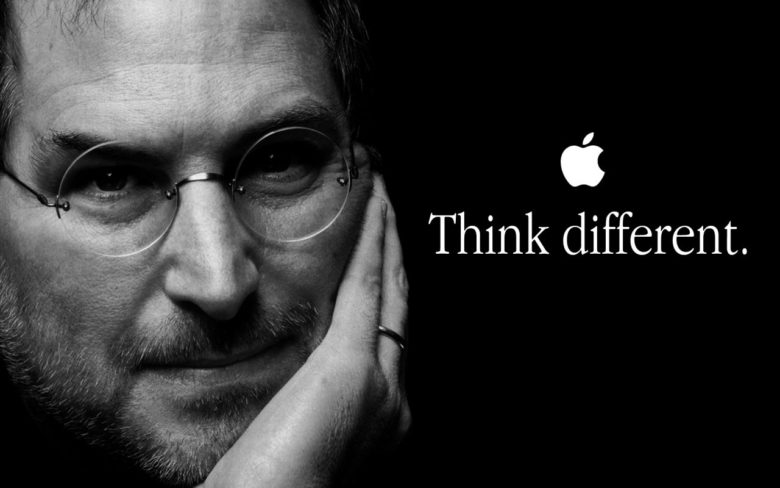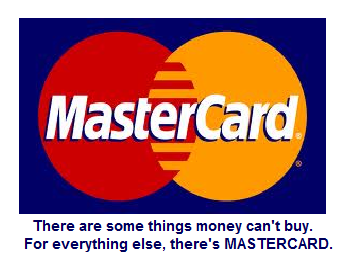Nowadays you might be hearing the term Branding being tossed around a lot.
But what exactly does it mean?
In short, branding refers to the elements that define the image, ethos, and tone of your brand and its products.

Think about iconic branding elements like Apple’s logo and its slogan (Think Different) or MasterCard and its slogan (There are some things money can’t buy. For everything else, there’s MasterCard).

You just, hear or see those things and you’ll instantly know what the brand truly stands for.
It always was and it always will be – Branding is important for a business not just because it differentiates your business from others but also for building brand loyalty, get better search engine ranks for organic searches, acquire more customers than your competitor.
We will be discussing the Branding in length, but before we delve deeper into the subject of branding I would advise keeping a couple of things in mind, like:
Know Your Audience
First and foremost you need to know about your audience, their persona, demographics, taste, etc. Understand who would want to get engage with your brand.
The users who want to buy a Mercedes would be entirely different and would look for a very different branding than someone who is looking for a scooter.
Once you’ve figured the basic traits of your audience, you can begin to create an identity that draws their attention.
Everything Counts
Keeping your brand relevant and consistent is the key.
It simply means that the graphic elements, copy, and any type of content, videos, infographics, podcasts, ebooks all must be part of the same concept and for the same audience.
For example, if you are targeting people who are interested in technology and gadgets, you should go with the tech-obsessed look, and use legible font styles that complement that contemporary style.
Also, do make sure that any promotions, on email, social media, advertisements, etc., reflect that same brand identity by tone, colors, graphics, fonts, etc.
There is a SMART way to choose a cool name for your business which will not only save you a lot of time but also gives you a great brand name.
Branding – the S.M.A.R.T. Way to Choose a Brand Name?
First of all, you need to understand what does SMART means. It’s Short, Memorable, Available, Repurposeable, and Timeless.
So, now let’s start with our SMART list to choose a cool brand name.
Branding is Simple
What makes a name simple?
First of all your brand’s name should be short. It should be unique. There are several reasons for this. Short names are:
- Quicker to type-in (especially on mobile)
- Easier to spell-out to someone over the phone
- More efficient to include in a tweet (or other “length constrained” channels)
- Simpler to come up with a logo for
- Less likely to be acronymized or otherwise shortened by others
Great examples of short names: Domo, Ola, Gusto, Trello, Uber.
Your brand’s name should not be more than nine or fewer characters.
But, in addition to being short, the brand name should be clear and easy to pronounce, type, and share.
Branding is a Memorable Name
People remember easy names, and usually forgot the names which are not easy to remember.
If you want people to remember your brand name then you should choose a name that is memorable.
Brand experience and customer experience comes later to add on to it, for which people remember your brand name.
Remember, the more easily your brand name can be recalled, the easier it is for you to expand your reach to users/customers/investors.
For a name to be memorable, it should be unambiguous and distinctive.
If it sounds like many other names out there, no one except you is going to recall it (or if they do recall it, they’re not going to recall the right one).
And, if they don’t recall it, there is hardly a way out there that they will come back to you.
Now, if you think that your brand name is unique and distinctive than scratch it from your head and go test it.
How would you test your brand’s name whether people pronounce, spell, and recall it?
Make a list of people friends, relatives, a couple of people you know from a club you go to or maybe friends from school or college.
Tell people your brand’s name in various contexts (on a website, in an email, in person, on the phone, etc.) — and see if they can recall it a few minutes or a few days later.
Record their responses on an excel sheet.
It takes a bit of work, but it’s worth it.
The good news is that if your brand’s name is not memorable, it’ll show up in the responses data pretty quickly.
And, if your brand’s name doesn’t test well, think of another easy to remember the name and test it again.
Available
This one’s obvious, but so many business entrepreneurs make this mistake.
You must make sure that your name is available, and by “available” I mean four things:
- You can get the legal rights to use it (trademark, etc.)
- Registering or acquiring the “.com” domain name is possible.
- You can create social media names without any prefix or suffix with your brand name. (Vanity URLs).
- Google doesn’t offer spelling suggestions for your brand’s name when someone types your brand name in google.
Though people might be asking me whether a .com domain name is necessary, I would say YES.
Even after so many years of internet and millions of companies out there, you will see that the best companies have .com domains.
For instance, Google.com, apple.com, Samsung.com, facebook.com, twitter.com, LinkedIn.com, Amazon.com, eBay.com, Paypal.com, nike.com, reebok.com, etc.
With a .com domain you need not people to specifically tell people to add .in, .us, .com.au. or .co.in etc.
People automatically understand that if you haven’t told them the TLD then it would be .com
Recommended Read: How to Choose Business Name for Your Startup
Repurposeable
This one’s tricky. Let’s say your brand has an amazingly brilliant name. It’s short, it’s memorable, and it describes directly what you do.
But, a year or two or five later if you want to do something different than when you started, or add up some more services or products which were not there when you started.
Then, your name is going to feel either inaccurate, constraining, or both.
Apple renamed its name from Apple Computers when they started manufacturing mobile phones, iPods, iPads, etc.
It’s shorter, still memorable and now gives them much more headroom in which to grow, now they make watches, MacBooks, iPads, wireless ear pods, and soon launching cars.
Branding is Timeless (not Trendy)
Since we are in the age of rapid changes and every few years, there’s a new trend in startup names.
Sometimes, it’s using names without vowels (Flickr, Tumblr). Sometimes it’s using “.ly” or .me, or .bb or any such domains and other popular country domains that happen to help complete words (like .in .us).
Why do startups do this? Often, because they feel like they have to.
However, doing that is not a good idea, and there are many reasons for that.
Because when something is “trendy”, chances are there are a hundred other startups following that trend and that makes it harder for you to stand out, and hence it doesn’t remain that cool you might be thinking.
Hence it is a better idea to choose a name that is timeless and not trendy. All the best companies have simply .com domains and they are still cool.
Here is a detailed guide for you on “How to Choose Business Name for Your Startup“. You can use the tips from this guide to choose a cool, trendy, and timeless business name for your startup.
In case you need professional help to find a cool name for your business and build a great brand, get in touch with us. Contact me by email krishan@digitoly.com and I would be more than happy to help you with any of the requirements you have for building your brand and marketing it well.


